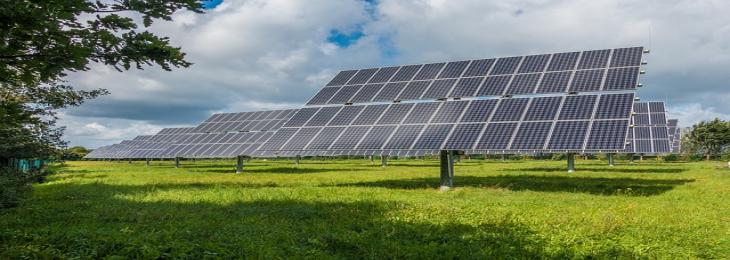Clear Solar Cells Do Not Deprive Greenhouse Crops of Sunlight
Apr, 2021 - By SMI

Share
Researchers at North Carolina State University grew lettuce in a variety of light wavelengths and discovered that the plants thrived.
Organic solar cells are gaining attraction as a suitable renewable energy device due to a variety of positive aspects. They can be made translucent or semi-translucent, and the wavelengths of light they collect can be modified, making them more versatile than other technologies. In principle, this makes them suitable for integrating into greenhouse tops. Such organic solar cells can absorb some of the wavelengths of light whilst enabling a few to move through to the vegetation beneath. The NC State team looked at how much power this form of setup could generate in the past and discovered that it might be just enough production of greenhouses energy neutral.
The researchers developed clusters of red leaf lettuce for 30 days in greenhouses, bringing them to maturity stage. The various clusters were all subjected to almost the same environmental conditions, including climate, fertilizer, water, and carbon dioxide. The only difference was the amount of light. The lettuces were divided into four classes: a control cluster that received standard white light, and three groups for the experiment that formed under light that was filtered in various ways. To stimulate wavelengths that can be blocked by the translucent solar cells, these altered the ratio of red to blue light they received.
The researchers then looked at many indicators that shows health of plant, such as the size and number of leaves, their weight, the amount of carbon dioxide they absorbed, and how much antioxidants they had. Surprisingly, the lettuces seemed to flourish regardless of the sort of light they were exposed to. The team found no difference in the vegetation not only between the controlled cluster and the filtered light group but also there was no noticeable differentiation between the other three groups with filtered lights. The team is now working the same experiment with different crops such as tomatoes to fully understand the effect of filtered light on vegetation.
Share
Stratagem Market Insights
533 Airport Boulevard, Suite 400, Burlingame, CA 94010, United States
Delivery Center
403, 4th Floor, Bremen Business Center
Aundh, Pune, Maharashtra 411007
India
